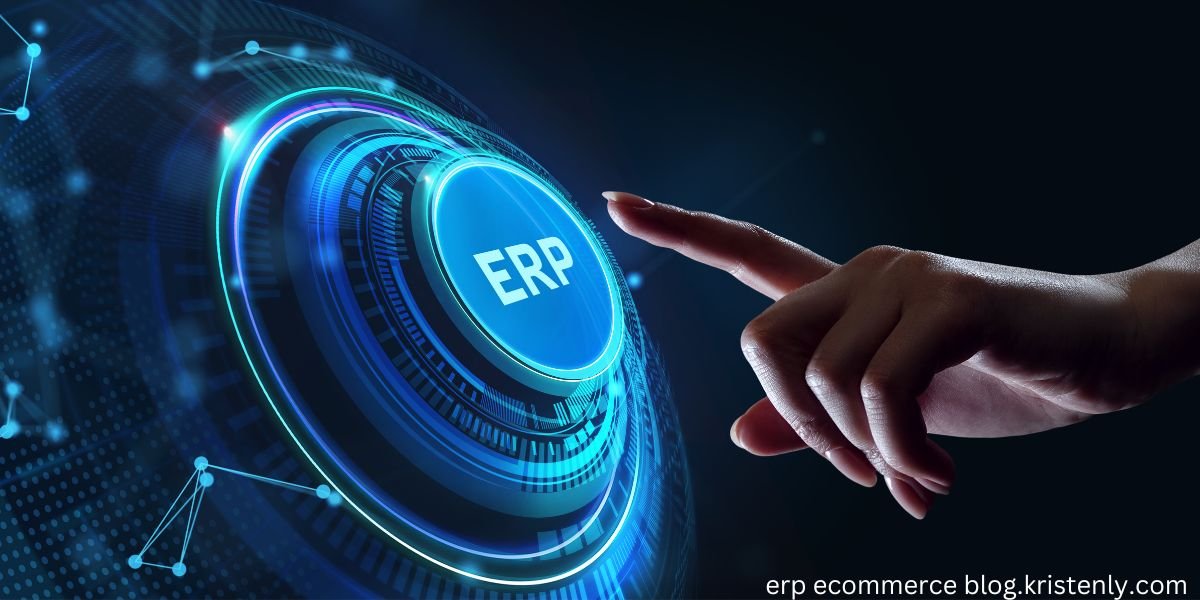ERP Ecommerce blog.kristenly.com: Unlocking Success

About ERP Ecommerce blog.kristenly.com
ERP (Enterprise Resource Planning) systems have become indispensable tools for businesses in the digital age, particularly in the eCommerce sector. They streamline operations by integrating various functions like inventory management, sales, marketing, accounting, and customer service into a unified system. For businesses looking to scale efficiently and maintain a competitive edge, ERP systems tailored for eCommerce offer unparalleled benefits.
Read Also: Elina Devia: A Rising Star’s Biography and Career |Sophie Rain Age: Rising Social Media Star and Influencer
Features of ERP Ecommerce blog.kristenly.com:
ERP systems designed for eCommerce come with a wide range of features that are crucial for efficient business management. Some key features include:
- Inventory Management: Real-time tracking of stock levels across multiple sales channels.
- Order Management: Automates the entire order lifecycle, from order receipt to fulfillment and returns.
- Customer Relationship Management (CRM): Helps manage customer interactions, improve service, and build long-term relationships.
- Accounting and Financial Reporting: Offers integrated financial tracking and reporting for better decision-making.
- Multi-Channel Management: Provides support for multiple eCommerce platforms and marketplaces.
These features simplify the complexities of managing an eCommerce business, enabling smoother operations and better customer experiences.
Read Also: India National Cricket Team vs Pakistan National Cricket Team Stats: Comparison
Understanding ERP Ecommerce blog.kristenly.com In Detail
At its core, ERP for eCommerce connects various departments within a business, providing a single source of truth for operations. This level of integration reduces silos and improves cross-departmental communication. For example, sales data can automatically trigger inventory restocking, while accounting systems can track financial performance in real-time.
ERP systems often offer customizable dashboards, giving business owners clear insights into key performance metrics. From tracking shipping costs to monitoring sales trends, ERP enables data-driven decisions that drive growth.
Read Also: Learning English Easily with blog.studybahasainggris.com |Statekaidz.com: A Comprehensive Educational Platform for Safe Learning
Competitive advantage of ERP Ecommerce blog.kristenly.com
The adoption of ERP systems can give businesses a significant competitive advantage. By automating routine tasks, businesses can focus on strategic growth and innovation. This automation reduces errors in order fulfillment, improves customer satisfaction, and ultimately increases profitability.
Additionally, ERP systems enhance scalability. As an eCommerce business grows, its operational demands increase. An ERP system scales with the business, accommodating more orders, products, and customers without overwhelming staff or systems.
ERP and Ecommerce Integrating
Integrating ERP with your eCommerce platform allows seamless data flow between the two systems. This integration eliminates the need for manual data entry, reducing the chances of human error. When an ERP Ecommerce blog.kristenly.com system is linked to an eCommerce platform, inventory updates, order processing, and customer data management happen automatically.
Popular eCommerce platforms like Shopify, Magento, and WooCommerce offer plug-ins and APIs for ERP integration, making it easier for businesses to unify their operations.
Benefits of ERP Ecommerce blog.kristenly.com:
The benefits of implementing an ERP system for eCommerce are numerous:
- Improved Efficiency: Automation of key tasks leads to faster operations and reduced human errors.
- Enhanced Customer Experience: Quick order processing and real-time inventory updates result in faster deliveries and fewer out-of-stock issues.
- Better Decision-Making: Access to comprehensive data across departments helps in making informed, strategic business decisions.
- Cost Savings: By streamlining operations, businesses can reduce overhead costs and minimize waste.
- Scalability: As the business grows, the ERP system can handle increased volume without a need for additional resources.
Some Major Advantages of ERP Ecommerce blog.kristenly.com
- Data Centralization: All information related to sales, inventory, and customers is stored in one location.
- Faster Response Time: With real-time data updates, businesses can respond faster to market trends and customer needs.
- Compliance and Reporting: ERP systems help businesses stay compliant with regulations and simplify the reporting process.
- Improved Supply Chain Management: By optimizing inventory and order management, ERP systems reduce lead times and improve supplier relationships.
Conclusion
Implementing an ERP Ecommerce blog.kristenly.com system in your eCommerce business is a game-changer. It not only improves efficiency and customer satisfaction but also enables businesses to scale seamlessly. For companies aiming for long-term success, ERP for eCommerce is an essential investment.
What is ERP for eCommerce?
ERP (Enterprise Resource Planning) for eCommerce is a system that integrates various business functions, such as inventory management, order processing, accounting, and customer relationship management (CRM), into a single platform. This integration helps streamline eCommerce operations and improve efficiency.
How does ERP benefit eCommerce businesses?
ERP Ecommerce blog.kristenly.com systems automate key tasks, reduce human error, provide real-time data, and centralize operations. This leads to better inventory management, quicker order fulfillment, enhanced customer service, and more informed decision-making. Ultimately, it saves time and money, and helps businesses scale effectively.
Is ERP only suitable for large eCommerce businesses?
No, ERP systems can benefit businesses of all sizes. While larger businesses may have more complex needs, small and medium-sized eCommerce businesses can also improve their efficiency, customer satisfaction, and ability to scale by implementing ERP systems.
Can ERP systems integrate with my existing eCommerce platform?
Yes, most ERP systems offer integration options with popular eCommerce platforms like Shopify, Magento, WooCommerce, and others. Integration ensures seamless data flow, reducing the need for manual data entry and keeping your inventory, orders, and customer information up-to-date in real time.




Leave a Comment